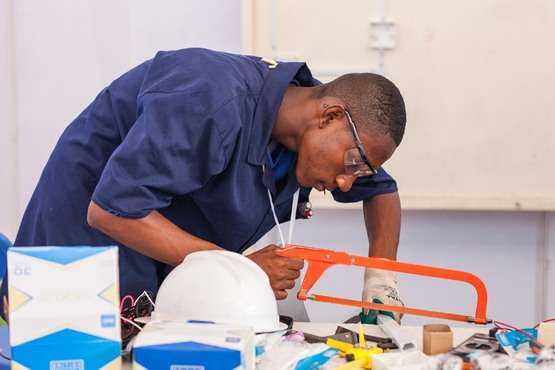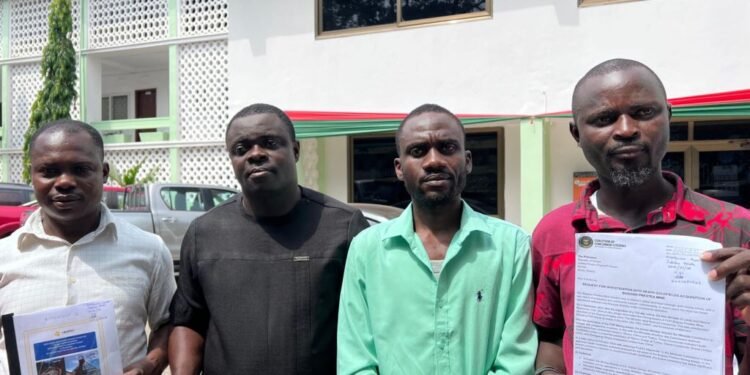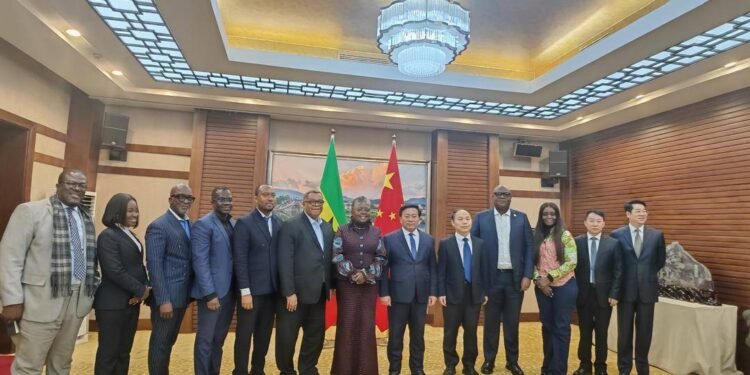Hon Rev John Ntim Fordjour, the Member of Parliament for Assin South District and Deputy Minister in Charge of Education, has highlighted the significant investment and strategic planning by the Nana Addo Danquah Akufo-Addo-led government in Technical and Vocational Education and Training (TVET) over the past seven years.
This investment is a notable achievement in the history of Ghana’s education sector, emphasizing the government’s commitment to enhancing the quality and accessibility of technical and vocational education.
“For every country to be economically strong, it ought to place maximum value on its skilled laborers, and this is the main reason why the NPP government under the leadership of His Excellency Nana Addo Danquah Akufo-Addo through His Excellency the Vice President of Ghana Dr. Alhaji Mahamudu Bawumia and together with the Ministry of Education has launched the National Apprenticeship Programme to train Ghanaian Youths into various vocational fields.”
Hon Rev John Ntim Fordjour, MP for Assin South District and Deputy Minister for Education
The emphasis on TVET reflects a broader strategy to address the needs of the Ghanaian economy, which is increasingly requiring skilled workers in various technical fields. This investment not only aims to improve the quality of education but also to align educational outcomes more closely with the demands of the job market, thereby enhancing the employability of graduates and contributing to economic development.
According to the MP and Deputy Minister in Charge of Education, the National Apprenticeship Programme initiative which is supported by funding from the Government of Ghana, the World Bank, and the German Government, has impacted many Ghanaian youth with competency-based skill training to equip participants with the skills needed to thrive in today’s job market, thus employment opportunities.
“The government of Ghana, through the Ministry of Education and the Commission for Technical and Vocational Education and Training (CTVET), has provided free training for over 17,527 apprentices and master craft persons across the country, which cost about 20 million Euros since 2017 to date.”
Hon Rev John Ntim Fordjour, MP for Assin South District and Deputy Minister for Education

Reforms to Improve TVET
Hon. Ntim Fordjour identified TVET as the missing link in Ghana’s educational sector, emphasizing the need for improvement in this area. As part of the strategic plan, technical and vocational schools are being constructed across the country to enhance learning.
The government has also initiated the Development of Skills for Industry Project (DSIP) facility, which has been funded by the Government of Ghana and the African Development Bank, aiming to equip students with practical skills in various fields.
The government has also secured significant funding to modernize TVET institutions. For instance, it has secured 12.8 million Euros from Austria to modernize 10 Technical and Vocational Education Training (TVET) institutions in Ghana. Additionally, through the United Arab Emirates (UAE), the government has expended an estimated 392 million Euros in infrastructure development in the National Vocational Training Institutes (NVTIs) to boost the TVET sector.
Elaborating on the successes, Hon Ntim Fordjour pointed out, “We’ve now moved past the fundamental challenges of TVET, and our gaze is fixed on harnessing emerging technologies, aligning with modern industrial methods, and tuning into the global market’s pulse.”
These initiatives underscored the government’s commitment to strengthening the linkages between education and industry, empowering the youth with the skills needed for a modern economy, and ensuring access to a minimum of Senior High School education for all Ghanaian children, with a particular emphasis on technical and vocational training.
The MP noted that a significant amount of funds has been allocated to improve access and quality in TVET institutions. This includes the upgrading and modernization of all National Vocational Training Institutes (NVTIs) and the Opportunity Industrialization Center (OIC), as well as the construction of three Foundries and Machining centers in Accra and Kumasi.
READ ALSO: Education Sector Gets Digital Boost























